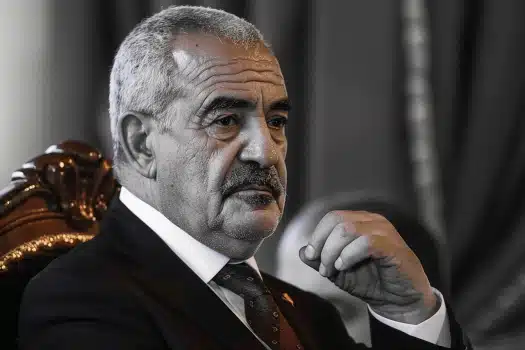In a significant political development, the Palestinian Prime Minister tendered his resignation from his government on Monday, marking a pivotal moment that could herald a new era of reforms within the Palestinian Authority. This move comes at a crucial juncture as the U.S. envisions the Authority playing a vital role in the governance of postwar Gaza amidst ongoing international efforts to broker a cease-fire.
Despite the resignation offering a glimmer of hope for structural changes, numerous hurdles loom. The President of Palestine, Mahmoud Abbas, faces the daunting task of accepting the government’s resignation, led by Prime Minister Mohammad Shtayyeh. Abbas’s vision for the Palestinian Authority (PA) to administer Gaza post-conflict is met with skepticism from various quarters. The PA, established as part of interim peace agreements in the early ’90s, grapples with issues of corruption and lack of popularity among Palestinians. Furthermore, Israeli Prime Minister Benjamin Netanyahu has unequivocally dismissed the prospect of the PA assuming control over Gaza, a territory from which Abbas’s forces were expelled by Hamas in 2007.
“The next stage and its challenges require new governmental and political arrangements that take into account the new reality in the Gaza Strip,” declared Shtayyeh, highlighting the imperative for adaptive governance in light of recent developments. Netanyahu, on the other hand, remains steadfast in his resolve to dismantle Hamas’s military and governance structures in Gaza, advocating for a model where Palestinian officials manage civilian affairs under overarching Israeli security supervision. This proposition, however, is met with resistance from the Palestinians, who aspire for an independent state encompassing the West Bank, east Jerusalem, and Gaza.
Amidst these intricate political dynamics, Abbas is rumoured to favour Mohammad Mustafa, a figure well-versed in economic and international relations, as Shtayyeh’s successor. Mustafa’s extensive experience with the World Bank and his rapport with American officials position him as a potential catalyst for the much-needed reforms within the Palestinian Authority.
As the region stands at a crossroads, the resignation of the Palestinian government signifies a readiness to embrace change, albeit within a landscape fraught with complexity and contention. The path forward necessitates a delicate balance between national aspirations, regional stability, and international diplomatic efforts to foster an environment conducive to peace and development.




